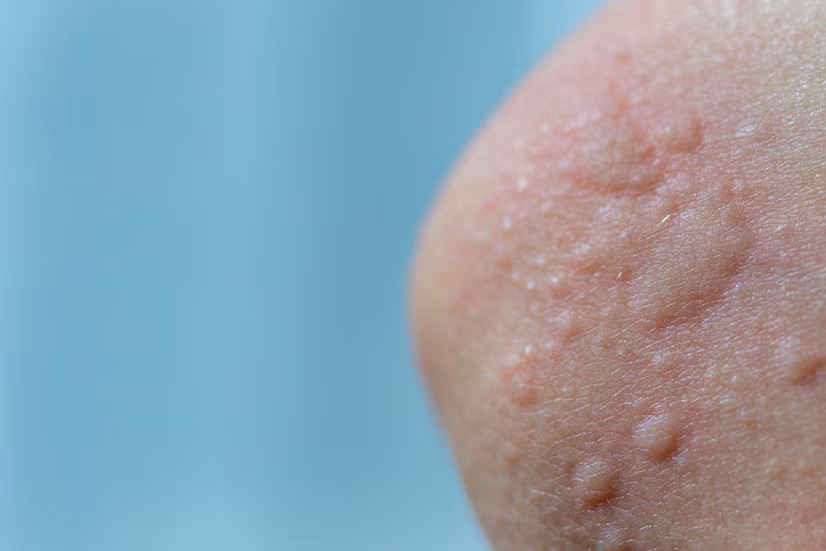- About Us
- Treatments
Skin Treatments
MenuMenuHair Treatments
MenuBody Treatments
Menu - Procedures
Aesthetics
MenuCosmetic Surgery
Menu - Training
- Products
- Gallery
- Contact Us
Urticaria appears as raised, well-circumscribed areas of erythema (redness) and edema (swelling) involving the dermis and epidermis that are very pruritic (itchy), as shown in the image below. Acute urticaria can be caused by allergic reactions to foods, drugs, cosmetics, or soaps, infections, insect bites, stings, or exposure, environmental factors, latex, undue skin pressure, cold, or heat; emotional stress, and exercise, among other factors.

For acute urticaria, the main consideration involves possible precipitants, such as the following
Recent illness
Medication use
New perfumes, hair dyes, detergents, lotions, creams, or clothes
Management of urticaria is focused on treating the symptoms and typically is not altered by underlying etiology. The mainstay is avoidance of further exposure to the antigen causing urticaria. Pharmacologic treatment options include the following:
Glucocorticoids.
Patients with chronic or recurrent urticaria should be referred to a dermatologist for further evaluation and management.
Consultation with or referral to a dermatologist, allergist, immunologist, or rheumatologist may be appropriate in selected cases, particularly in cases of complicated, recurrent, refractory, severe, or chronic urticaria. Dermatology referral is mandatory if urticarial vasculitis is suspected.
Book An Appointment